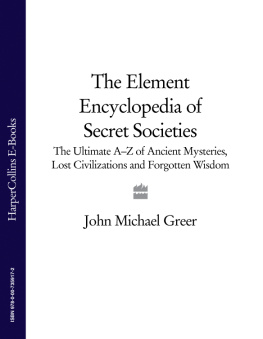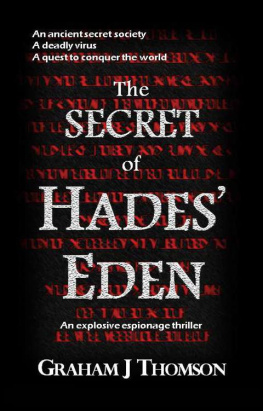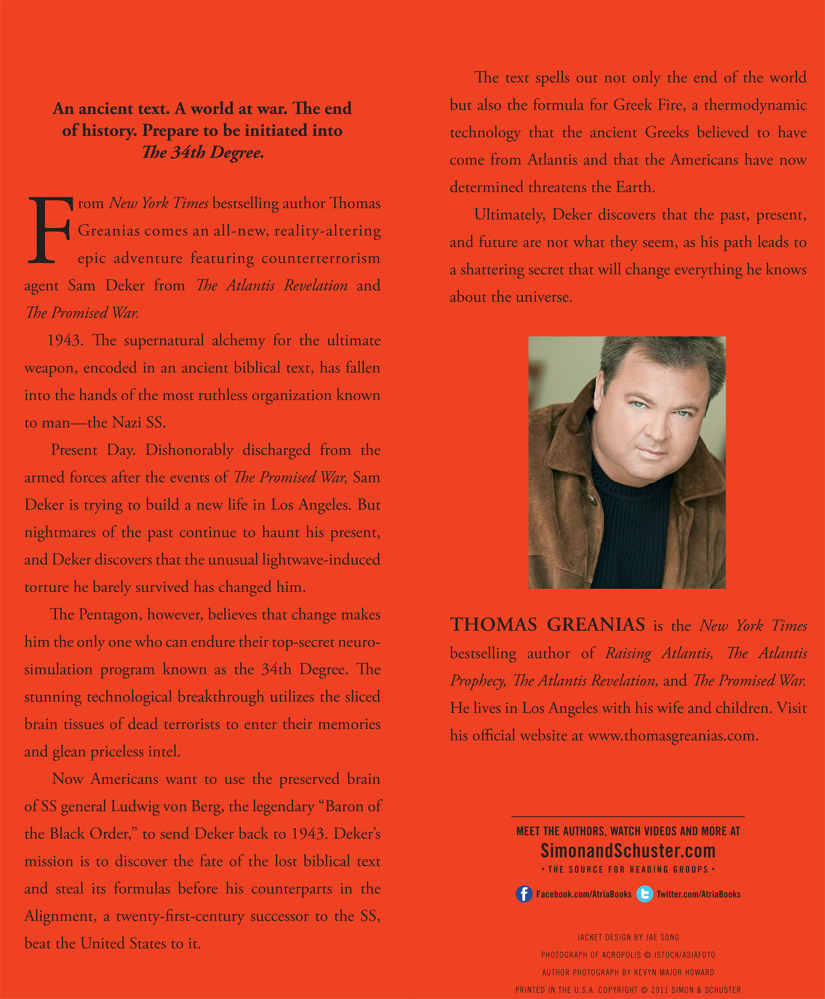
THE 34TH DEGREE
Also by Thomas Greanias
The Promised War
The Atlantis Revelation
The Atlantis Prophecy
Raising Atlantis

A Division of Simon & Schuster, Inc.
1230 Avenue of the Americas
New York, NY 10020
www.SimonandSchuster.com
This book is a work of fiction. Names, characters, places, and incidents either are products of the authors imagination or are used fictitiously. Any resemblance to actual events or locales or persons, living or dead, is entirely coincidental.
Copyright 2011 by Thomas Greanias
All rights reserved, including the right to reproduce this book or portions thereof in any form whatsoever. For information, address Atria Books Subsidiary Rights Department, 1230 Avenue of the Americas, New York, NY 10020.
First Atria Books hardcover edition June 2011
ARTIA BOOKS and colophon are trademarks of Simon & Schuster, Inc.
The Simon & Schuster Speakers Bureau can bring authors to your live event. For more information or to book an event, contact the Simon & Schuster Speakers Bureau at 1-866-248-3049 or visit our website at www.simonspeakers.com.
Manufactured in the United States of America
10 9 8 7 6 5 4 3 2 1
Library of Congress Cataloging-in-Publication Data
Greanias, Thomas.
The 34th degree: a thriller / Thomas Greanias.1st Atria Books hardcover ed.
p. cm.
1. Intelligence officersIsraelFiction. 2. Arab-Israeli conflictFiction.
3. Middle EastFiction. I. Title. II. Title: Thirty-fourth degree. PS3607.R4286A55 2011 813'.6dc22 2011003088
ISBN 978-1-4516-1239-4
ISBN 978-1-4516-1240-0 (ebook)
For my mother, father, and sister
METEORA, GREECE, 1943

I t was on the Feast of the Ascension, forty days after Easter 1943, when an agent of the British Secret Service turned up at the doorstep of the Monastery of the Taborian Light and Philip knew his life as a monk was over.
Wrapped in his black cassock and hood, Philip had been on his knees with his brothers in the sanctuary, celebrating the resurrection and ascension of the Lord Jesus Christ, praying in eager expectation at the blessed hope of His return. This was as he had done for over twenty years, ever since he renounced his former ways and retired to the Monastery of the Taborian Light.
The monastery was perched atop one of the many otherworldly peaks of Meteora, the most remote and mysterious region of Greece. A thousand feet below lay the village of Kastraki, nestled in the foothills. Clinging to its gray granite summit, undisturbed by war or petty human conflicts, the Taborian Light was an impregnable retreat where the Eastern Orthodox monks could witness the unfolding of earthly affairs below and reflect on the eternal.
Here Philip made it his ambition to lead a quiet and peaceful life, just as the apostle Paul had instructed the original church at Thessaloniki. Toward that end, he had allowed his gray hair and beard to grow long, making him seem older than his fifty years, and cloaked in the humility of a monk, he tried to make himself as small and wiry a figure as possible.
But his shapeless cassock could not hide his hard physique or the alert, confident movements of his limbs. Nor could his hood completely veil his eaglelike nose and sharp features. Locals who glimpsed his face during a rare trip to the village never missed his shining black ramlike eyes, set wide apart, gazing placidly from beneath his bushy eyebrows. Their faces would darken with fear, and they would scurry away. Whether they recognized him or not, they instinctively knew he was not one of them.
The sound of hurried footsteps broke Philips trance, and his quick black eyes darted up to see Brother Vangelis whisper into the Archimandrites ear. The old monks face, barely visible behind his great beard and the misty veil of burning incense, fell as he looked at Philip, and the peace that Philip had known for twenty years left him.
So the day has come, Philip thought, and with it the dread.
Philip crossed himself three times before he rose from the floor. With a silent nod, he acknowledged the Archimandrite, took a deep breath, and left the sanctuary.
The visitor was in the narthex, admiring a wall painting of The Four Horsemen of the Apocalypse . He was dressed like a Greek peasant, and with his high forehead, long aesthetic features, and beard, he bore an absurd resemblance to a saint out of some Byzantine icon. But his blue eyes and fair skin betrayed him. When he spoke, it was in perfect Oxford English.
Commander Lloyd, British Intelligence, said the Englishman, looking him over. You must be Philip. Youre smaller than I thought.
That was what most men thought. Philip lowered his hood and watched Lloyd drop back a couple of steps in fear.
They were right after all, said Lloyd, marveling. The face of a hawk and the eyes of a ram.
Philip narrowed his eyes. What do you want, Commander Lloyd of British Intelligence?
Why, the same thing the Nazis want, Lloyd replied. The Templar Globe. More precisely, whats inside the globe.
An uneasiness Philip hadnt felt since his early days now gripped his heart, and he blinked as though he failed to understand. Im sorry, I dont know what
The Maranatha text, pressed Lloyd. The one the apostle Paul wrote to the Thessalonian church in the first century. The one that dates the end of history and the return of Christ.

P hilip looked at Lloyd, well bred and impatient. He is as I once was, he thought, and decided to be gentle but firm. Even if there ever were such a text, Commander, what makes British Intelligence believe it has survived the ages?
Lloyd had a ready answer. When Arab Muslims besieged Constantinople in the eighth century, the Byzantine Greeks defending the city were able to save themselves with a miraculous and secret weapon. A compound that burned when it came into contact with water. A substance that became known as Greek Fire. Now, the exact formula used by the Greeks remains a mystery, but we know it included the compound naphthalene palmitate. Better known as napalm.
Which is hardly a secret anymore, Philip observed, as napalm is commonplace in your bombs and flamethrowers.
But the Byzantine Greeks deployed it in a different and, in some ways, more potent form twelve hundred years ago.
Philip shrugged. I hardly see what Greek Fire has to do with the Maranatha text.
The defenders of Constantinople used Greek Fire aboard their war vessels as a missile to be hurled from a catapult. By destroying the wooden fleets of the Muslim Arabs, Greek Fire blocked the spread of Islam into Europe. Rumors swirled among the ranks of the retreating Muslims that the Byzantine Greeks discovered the formula for their infernal fire encoded in the contents of the legendary Maranatha text. That is why, seven centuries later, when Constantinople finally fell to the Turks in the fifteenth century, bands of Muslim invaders turned over every stone in the city to find it.
But the text, I take it, was not to be found, Philip said guardedly.
No. During the siege, the Greeks had no choice but to turn to the Knights Templar to smuggle it out of the city to Rome, where it would be safely beyond the reach of the Ottoman Empire. But it never reached Rome. Instead, it ended up with the Freemasons at their Three Globes Lodge in Germany, founded to protect three golden globes from King Solomons temple. Two of those globes ended up with the American Freemasons, who buried them beneath Washington, D.C., at the founding of the United States of America. The third remained in Germany until Greece finally won its war of independence from Turkey in 1830 after four hundred years. The third globe, with the Maranatha text inside, was returned to its original home, a secret monastic order descended from the original Thessalonian church, whose members can trace their ancestry through the laying on of hands to the apostle Paul himself.
Next page
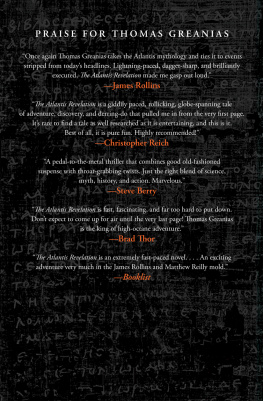
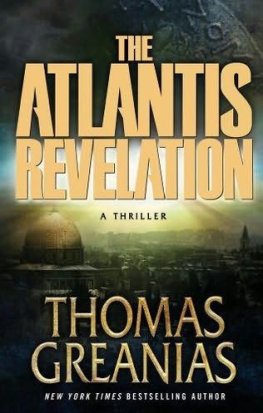
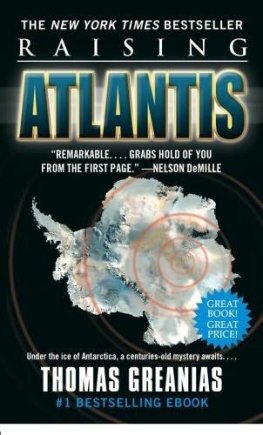
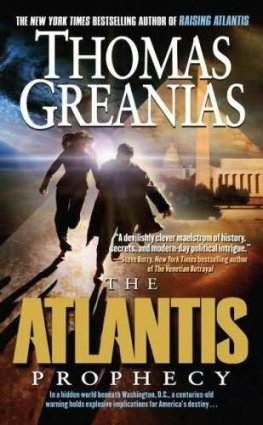
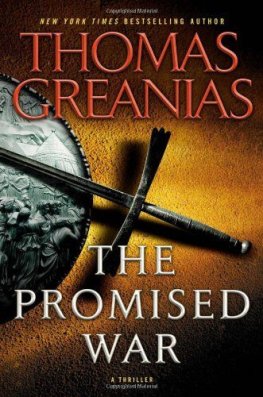
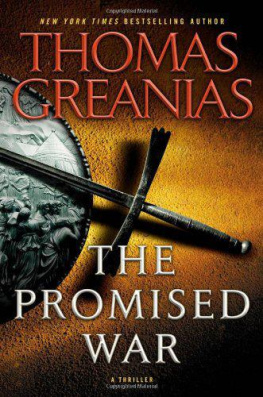


![Maxwell - The 360 [-degree] leader: developing your influence from anywhere in the organization](/uploads/posts/book/218782/thumbs/maxwell-the-360-degree-leader-developing-your.jpg)
